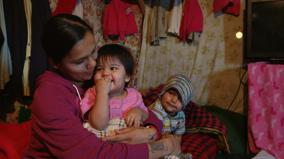Skip to content
Accessibility

New release
Coming
None
Life on Victor Street
2012
29 min
Leaving soon
This short documentary depicts an Aboriginal Winnipeg teen’s struggle to stay in school and away from local gangs. Filmed over 2 years, the film is a moving portrait of one family trying to break the cycle of addiction, violence and poverty in an environment filled with anger and despair.

This short documentary depicts an Aboriginal Winnipeg teen’s struggle to stay in school and away from local gangs. Filmed over 2 years, the film is a moving portrait of one family trying to break the cycle of addiction, violence and poverty in an environment filled with anger and despair.
-
writerKirby Hammond
-
directorKirby Hammond
-
producerBonnie Thompson
-
editorJoni ChurchErika MacPherson
-
story editingErika MacPherson
-
director of photographyKirby Hammond
-
location sound recordingKirby Hammond
-
production assistantRoger Boyer
-
B cameraRoger Boyer
-
sound designHoward Rissin
-
mixHoward Rissin
-
online editorTony Wytinck
-
colouristTony Wytinck
-
production coordinatorGinette D'SilvaFaye Yoneda
-
production supervisorMark Power
-
marketing managerLeslie Stafford
-
program administratorDarin Clausen
-
executive producerDavid Christensen


















